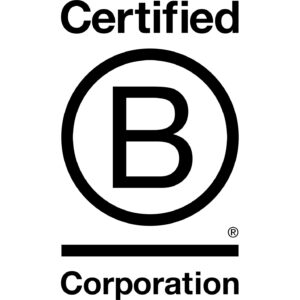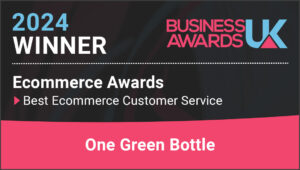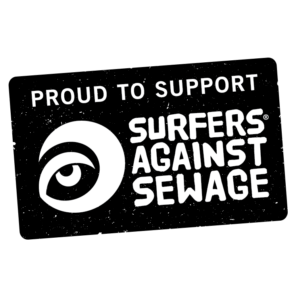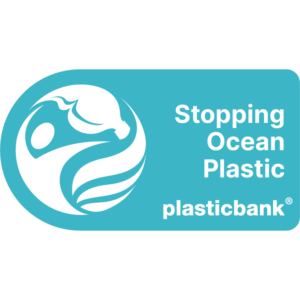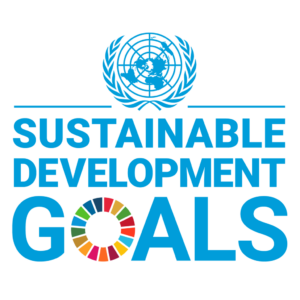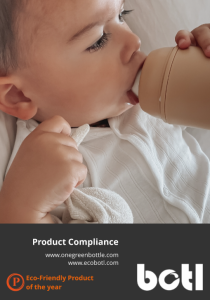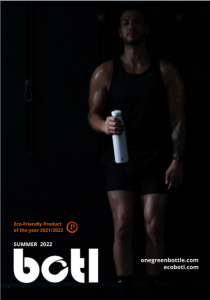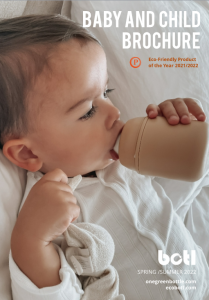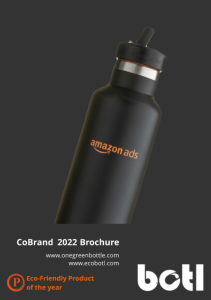How does the ocean affect climate change?
This World Ocean Day it has been Liv’s pleasure to interview Jo Ruxton MBE, founder of Ocean Generation. They are global movement that exists to restore a healthy relationship between humanity and the Ocean, using education and young people as a catalyst for change.
Jo gave us some updates about what Ocean Generation are doing and have in the pipeline, busted some myths about the environmental crisis, and shared invaluable tips for reducing your impact on the planet (and cold water swimming).

Liv: What current campaigns do Ocean Generation have running currently and what outcomes are you hoping to achieve?
Jo: We like to be on the positive side. There’s so much doom and gloom news out there, instead we want to connect people to the ocean so they grow up understanding it and how important it is for regulating climate and stabilising our weather. It gives us so much. So many people are still being taught that the forests are the planet’s lungs, but half our oxygen actually comes from the ocean and it absorbs much of our CO2. If people knew this maybe we would have more respect for it and stop using it to discard our rubbish.
Our Wavemakers workshops are our main project at the moment, and there are two different workshops we run – Light Currents and Deep Currents. These are aimed at 16-25 year olds, and we run them through businesses and universities etc. Light Currents is an introductory workshop which takes an hour and Deep Currents is a longer 3 hour one where we work with them to look at their own interests to come up with a campaign. One example we did was where they had to organise a plastic free music festival.
I live in Newquay and we have a festival there. Last year it was awful as 500 tents were just left on the hillside. There are loads of things that can be done, from tent hire to catering and putting info on the tickets, and these workshops make people look at things in the context of their own lives and through their own businesses. We help guide people into sustainability careers, or if they have a fixed career we help them to bring an element of responsibility within their workplace and encourage their colleagues to do the same. This takes the message beyond schooling, but until now schools had not been teaching the importance of the ocean, so this is really important too.
Liv: What is the best thing that individuals can do to support Ocean Generation and have an impact on the plastic problem?
Jo: The first thing people need to do is understand what plastic was designed to do; which is to defy nature and not break down. The biggest mistake we’ve made is using it for single use items.The other thing that people need to understand is that recycling is NOT the solution. Recycling is a linear process and only one percent of plastic globally goes through the system twice – the cycle isn’t perpetual.
Although we did a section on recycling in A Plastic Ocean, that was 5 years ago and there are things I would change about the documentary now. Certain types of plastic might go through more than once, but in general it is just once and then the plastic will end up back in circulation or in the environment. Recycling should be seen a last resort unless its chemical recycling and it can be turned back into its original elements
Replacing, redesigning, reusing, repurposing, rethinking and reducing all need to come before recycling, and this will only happen when people understand the lifecycle of plastic. And it’s so easy to replace things when you realise this; for example butter, you could buy in plastic or you could just buy it wrapped in paper. If you don’t like how hard it is in the fridge – my tip is use a potato peeler! And things like single use cigarette lighters now it’s coming up to bbq season, they’re mostly made of plastic and you cant even refill them – so use a lighter you can refill, or one that uses lightning technology and you can recharge from a USB. There’s so many ways you can make changes, even solid deodorant, there’s alternatives everywhere.
Once you start rethinking plastic you can’t continue to use it like you used to. My advice is look at your own footprint, when you’re in the shops buy veg fresh and not in containers (I know its hard in convenience stores in cities, but in most places if you just look there are lots of little market stalls, particularly ones with rare fruits, all displayed beautifully outside the shop!
Liv: That’s so true, we’re in Brighton which is a bit of a way ahead but there are SO many refill shops and grocery stores, for me one of the main thing that puts people off is that refill stores are expensive, but even in the supermarket you can make wiser choices, for example buy your tomatoes loose rather than in a plastic bag.
Jo: Exactly, and there’s a lot of packaging in cardboard now, you just need to look. Once you get in the habit it’s much easier.
Liv: What is the main angle you are taking for World Ocean Day this year and what message are you trying to spread?
This year our theme is Revitalization: Taking Collective Action. All our efforts are focused on equipping people to take action together on a daily basis so we’re excited to celebrate and amplify this message. We’re encouraging people to make pledges to the ocean including reducing waste and pollutants. We are releasing new products for youth engagement, including film clips and an app for younger children. It’s also a big day for me as I get my MBE for services to marine conservation!
Liv: Do you think people are starting to recognise the importance of the ocean and change their attitudes towards it?
Jo: I used to work for the BBC, I had worked in conservation before and I was brought in to work on the original Blue Planet series. All the time we were filming something didn’t seem right – we were not telling the whole story. If you watch that series you would think everything was fine and the ocean is full of fish and the beaches are clean…you don’t see us having to clean plastic off the beach before we can film nesting turtles, or work around massive sheets of polythene half a kilometer long in southern Spain to film pilot whales. We felt that we needed to tell the true story and I spent the next 12 years trying to persuade the BBC to put the conservation aspect in. I was always doing underwater films and we never talked about the decimation of shark populations for example, which are down 90%, and we need those top predators for the ecosystem. So when I was leaving and was talking to the people pulling together the team for Blue Planet 2, I talked about plastic and the importance of them putting it in. So our film came out in the January of the same year, and there was a screening of Blue Planet which David Attenborough was at. When he saw it he asked them why they hadn’t put plastic in and suggested they watched my film. So they put the sequence in and everyone jumped on it! So can you imagine if we’d put it in the first version of Blue Planet, we might be in a different place entirely by now, but I was being told people didn’t want bad news, they wanted to be entertained. But look how people reacted to the news, Blue Planet was a massive catalyst for the message that we had been putting forward.
I’m fundraising for a new film now which will be more uplifting, not giving too much away at this stage but it’s definitely something that we need. It will enchant people, and when you start to learn about things and how fascinating they are it makes people want to do more.
Liv: I totally agree that people do need a reality check, but also there’s only so much bad news people can take. So it is great to start making the solutions seem attainable rather than overwhelming them with problems that seem too big.
Jo: Yes, and one of the main problems with some Netflix documentaries is that they can be inaccurate, but also it’s all doom and gloom. Some have even said marine protected areas dont work but they do! I’ve helped set them up and have dived in them, I’ve spoken to the fisherman before and after. There’s a very successful one in Lyme Regis and it worked so well the model has been adopted in Turkey, Spain and France. If people think there’s no point they will give up.
Liv: Do you eat fish yourself?
Jo: Yes I do, I have a sustainable fish app called Seafood Watch, and if someone’s caught a fish by a line off the back of a boat that I’m filming on then yes I’ll have some. But I am careful. People need to understand sustainable food, and I applaud people that don’t eat fish but the whole idea of veganism I have a bit of an issue with. Things like jackfruit come in plastic lined tins from 6000 miles away and I think having meat from a local farm that I trust is the better option. Yes some plant based food is great but there’s too much that’s wrong with it and too much plastic.
Liv: It’s hard to find a balance between the trade offs – what would you suggest?
Jo: Eat locally and everything in moderation. It’s better for everyone to be doing this than a few people preaching and getting everything wrong.
Liv: When you work as a guest speaker, who are your favourite audiences to speak to?
Jo: I don’t think I have a favorite! I have spoken to people of all age groups and it’s so refreshing when you get feedback – a lot of times you see the light go on and people think about things they never have before. I don’t think I’ve ever been to one where I haven’t had a new question and I don’t try and answer if I don’t know, so I’m happy to learn along with everyone else.
The best is when you get the 15/16 year olds who seemed uninterested to start with but who perk up at the talk of sharks and submarines and movies, and they start to realise how important they are as a generation. Everyone can do something on some level. I like to think I have influenced some people somewhere around the world who might go on to be changemakers.
Liv: If you could have one wish granted that would make the biggest impact for the environmental crisis what would you change?
Jo: People’s connection with nature and their understanding of it. When you look at indigenous communities and how they understood, and were linked to nature, you see we have got more and more technological and almost laughed at their beliefs. We’ve turned our backs on nature. Once you reconnect, not only is your wellbeing better but the planet gets better too, and people need to understand what they’re influence can be and how one person can make change and influence others.
Kids can be incredibly influential even while they’re young – I did a 20 minute assembly at a school and afterwards the catering manager told me she couldn’t stop selling bottled water in the shop because she needed the income and to balance her books, which is fair enough I suppose. But a while later one of the teachers phoned and said that in the months following, not one child had bought bottled water! The same teacher also bought in a load of ice creams for the end of term, but when the kids saw each one came in a novelty plastic cone cone they all refused to eat them. This connection needs to start young, but also people need to realise it’s never too late to change – and with that understanding comes joy.
I think lockdown did a lot for peoples realisation of the importance of nature. People realised how much the ocean does, and so many people wanted to come here. You can’t be angry when you’re looking at the ocean, there are so many benches along any seafront across the country because people love to just sit and look.
It’s great to see how young people interact with nature, because they do and they do understand. I was in a rockpool with one of my granddaughters recently and there were little bubbles coming up from the seaweed. I explained to her that the seaweed was busy making oxygen, and she said: ‘But the oxygen comes from the trees’. Young people need to be taught that the ocean photosynthesises far more than the world’s forests.
Liv: What else needs to be done?
Jo: It annoys me that the biggest supermarkets are the worst offenders. There seems to be lots of empty promises, like ‘all our plastic will be recyclable’ or ‘we use 30% recycled plastic in our products’, but the minute you add any recycled plastic to new, it reduces the amount of times it can be recycled – so you may as well add new plastic.
But there have been massive changes in the past 14 years – people are talking about it now, there are refill shops, there are great technologies that are closed loop and circular, and the first plant like this will be in the UK. Governments are on board and making changes, but peoples attitudes need to catch up.
Liv: We love how you present everything with positivity and a can-do attitude.
Jo: I think you need to know it’s possible, it’s like training with Olympic athletes – you have to believe you can win.
As a little bonus, here are Jo’s top tips for sea swimming…
- As you’re walking into the water, put 3 fingers beneath your belly button and all your attention will go to that point and ground you
- Just as the water comes up to your chest, don’t panic, just breathe out slowly, it’ll feel really cold for 2 minutes and then you get the rush of warmth and endorphins
- Stay in for 1 minute per degree and make sure you have something really warm to put on after!
You can read more about Ocean Generation’s work here and here.


